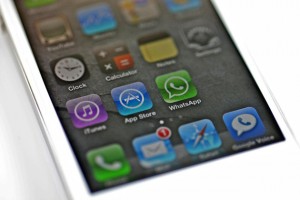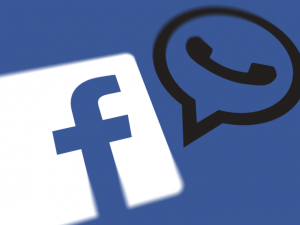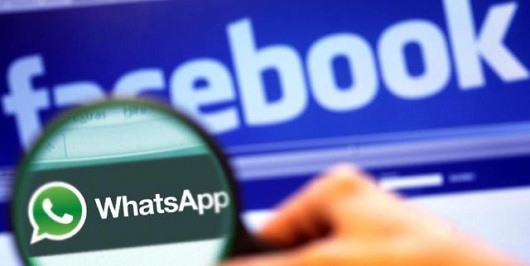World News – Fcebook is buying buzzy messaging app WhatsApp for a whopping $16 billion in cash and stock, the social media giant announced late Wednesday.
 WhatsApp is a messaging service that works on all major phone operating systems, and it transmits users’ text and video messages via their Internet data plan — it doesn’t “charge” the messages to users’ texting plans, even if the text is being sent internationally. The app is free to download, and its service is also free for the first 12 months. It costs 99 cents annually after that first year.
WhatsApp is a messaging service that works on all major phone operating systems, and it transmits users’ text and video messages via their Internet data plan — it doesn’t “charge” the messages to users’ texting plans, even if the text is being sent internationally. The app is free to download, and its service is also free for the first 12 months. It costs 99 cents annually after that first year.
The app is wildly popular, with 450 million active users, and that rabid fanbase clearly helped the company fetch a high price.
In a filing to the Securities and Exchange Commission, Facebook said it plans to acquire WhatsApp for $12 billion in stock and $4 billion in cash. The deal could be worth up to $19 billion, as Facebook said it will pay out an additional $3 billion in restricted stock units to WhatsApp employees if they remain employed at Facebook for four years. The deal is subject to regulatory approval.
The price tag is eye-popping. But a WhatsApp acquisition represents a way for Facebook to buy its way into mobile messaging, a hot market in which Facebook has struggled. Facebook has released a few messaging products, including a standalone mobile app, but they haven’t reached mass adoption. The company also reportedly tried and failed to buy photo-messaging app Snapchat for $3 billion.
Facebook did grab photo app Instagram for $1 billion in 2012, in what was then the company’s largest acquisition.
WhatsApp, meanwhile, is adding users at a stunning clip: more than one million new people every day. About 70  percent of the app’s 450 million total users are active on a given day.
percent of the app’s 450 million total users are active on a given day.
Part of that devoted user engagement is due to WhatsApp’s “no ads, no games, no gimmicks” motto that co-founder Jan Koum detailed at a tech conference last month. Koum stressed in a company blog post that WhatsApp will stick to that philosophy.
“Here’s what will change for you, our users: nothing,” Koum wrote.
Koum and Facebook CEO Mark Zuckerberg repeated that promise during a conference call with journalists and analysts after the deal was announced.
Zuckerberg promised that WhatsApp’s product plan “is not going to change,” and he pointed to Instagram as an example of the “autonomy” Facebook affords some of the companies it acquires.
In fact, Koum said a few times that “monetization is not going to be a priority for us right now.” Instead, he and Zuckerberg said WhatsApp will continue to focus solely on growing its already huge userbase.
When and if the time does come for WhatsApp to focus on moneymaking, Zuckerberg said he doesn’t “think ads are necessarily the best way to monetize messaging services.”
One analyst asked how many of WhatsApp’s current users pay for the service versus how many are still in the free first year, but Facebook CFO David Ebersman declined to comment. He also would not share geographic details on WhatsApp’s users, nor the factors Facebook considered in offering WhatsApp $19 billion.
Facebook said it was confident the deal will pass regulatory review, but if it falls through, the company will pay WhatsApp $2 billion in cash and stock. When and if the acquisition is complete, Koum will join Facebook’s board of directors.
BY JULIANNE PEPITONE, NBCNews.com

